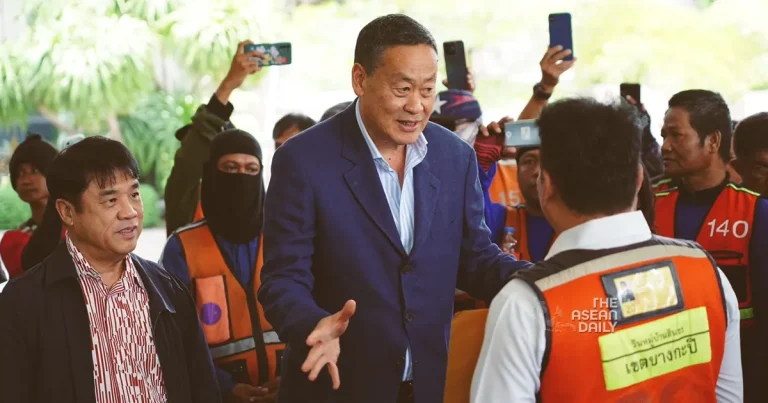6-9-2023 (BANGKOK) Prime Minister Srettha Thavisin, who leads a coalition government comprising 11 parties, has set forth a promise to demonstrate his administration’s ability to govern the nation effectively within the span of 3-6 months. His commitment to delivering results and his willingness to consider valuable input from the public were emphasized as he, along with his newly appointed cabinet, entered Government House for the first time on Wednesday.
The day commenced with a solemn act of paying respects at the shrine outside Government House, a symbolic gesture that signifies the gravity of their responsibilities. Following this, the prime minister and his cabinet members convened to discuss the government’s forthcoming policy statement, scheduled to be presented to parliament on the following Monday.
Addressing the press after chairing this pivotal cabinet meeting, Prime Minister Srettha Thavisin expressed his need for a reasonable timeframe to administer the nation effectively. He stated, “I need time for national administration, and I would like some six or three months (to demonstrate my performance). I believe I have an open mind. I will listen to anyone who has useful information and valuable recommendations.”
This declaration underscored the prime minister’s commitment to open governance and responsiveness to the concerns and ideas of the citizens.
When questioned about the government’s immediate priorities, Prime Minister Srettha outlined plans to support farmers by reducing the cost of fertilizers and pesticides while exploring new markets for agricultural products. He revealed that the cabinet would approve measures to address water shortages faced by farmers due to the El Nino weather pattern during its first regular meeting next Wednesday.
A draft of the government’s policy statement, made available at the parliament on Wednesday, outlined several immediate policy objectives. These include the disbursement of 10,000-baht digital wallet subsidies, debt relief solutions for the agricultural, business, and civil sectors, rationalization of energy prices, simplification of visa processes for visitors from selected countries and participants of international meetings, and the process of rewriting the constitution.




